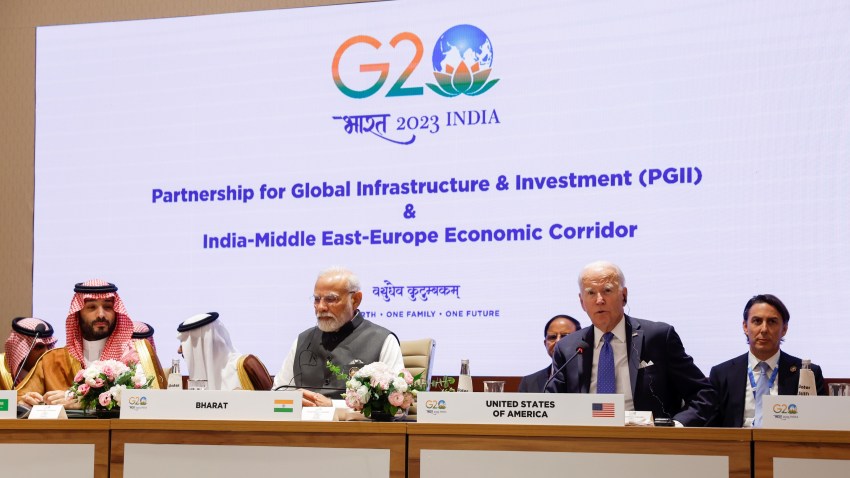One of the more significant initiatives to emerge from the G-20 Summit held in New Delhi earlier this month was the India-Middle East-Europe Corridor, or IMEC, announced by the United States, India, Saudi Arabia, the United Arab Emirates, France, Germany, Italy and the European Union on the sidelines of the gathering. Designed to stimulate economic development by fostering enhanced connectivity and economic integration between Asia, the Gulf and Europe, IMEC will create a multi-mode transit corridor joining two branches by rail and sea. The eastern branch links India to the Gulf, while the northern branch connects the Gulf to Europe.
Upon its completion, as outlined in the White House’s statement, IMEC will provide a dependable and cost-effective transit network that will complement existing maritime and road transport routes to facilitate the movement of goods and services between the participating states. For Washington and Brussels, the ambitious transcontinental project represents a geoeconomic and geopolitical effort to increase connectivity with the littoral states of South Asia and the Middle East through trade and commercial networks, with an eye to molding the resulting partnerships in line with Western interests.
However, for the strategically important states along IMEC’s path—most notably India, the UAE and Saudi Arabia—their participation in the project does not reflect a desire to choose sides amid an era of great power competition. Rather, it reflects the importance these countries place on mutual geoeconomic and geopolitical integration as a way to ensure regional stability and achieve ambitious national growth goals.

